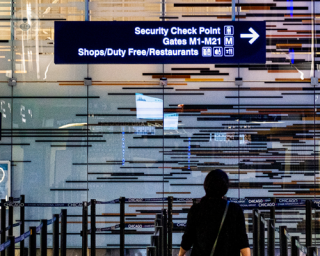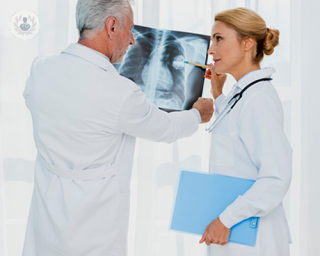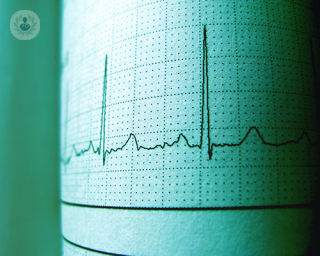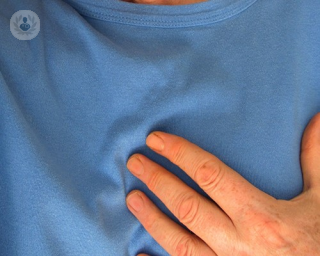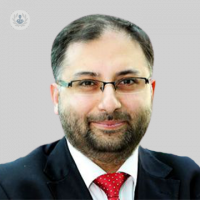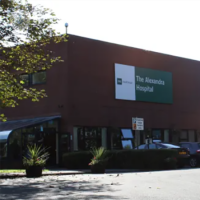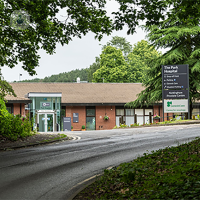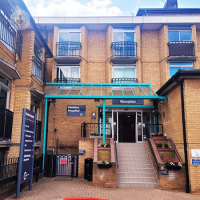Pacemaker
What is a pacemaker?
A pacemaker is a small electric device which generates electrical impulses to regulate your heart rhythm particularly when the heart's own electrical system is so slow or sluggish that it fails to generate sufficient heart rate for normal day-to-day functioning. The major symptoms of low heart rates include dizziness, passing out, or shortness of breath on exertion.
It is generally fitted in the chest. About 25,000 people are fitted with a pacemaker each year in the UK.
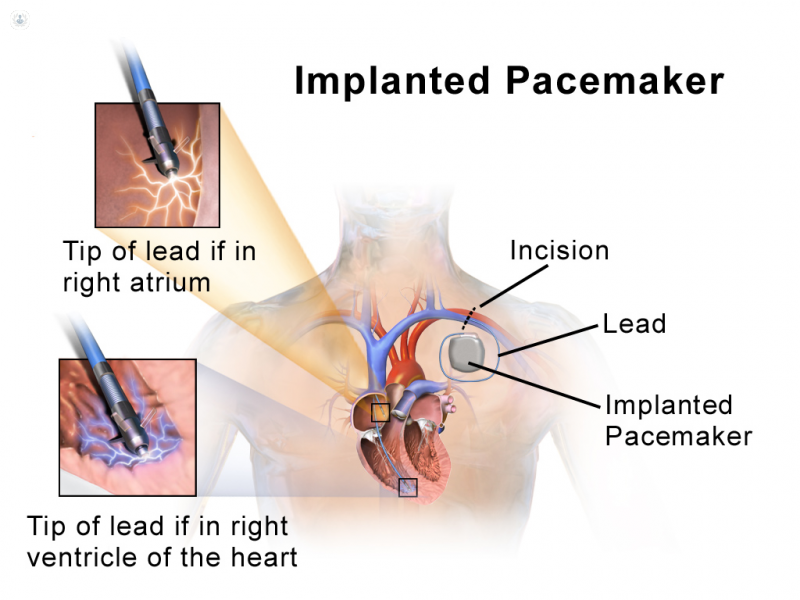
Most people will be fitted with a traditional pacemaker, of which there are three types, depending on how many wires it has:
- a single-chamber pacemaker has just one wire, connected to the upper or lower heart chamber on the right side
- a dual-chamber pacemaker has two wires connected to both heart chambers on the right side
- a biventricular pacemaker has three wires, two connected to the chambers on the right side, and one connected to the left ventricle via aleft ventricle structure termed the coronary sinus.
- a conduction-system pacemaker is a special pacemaker that is implanted to allow the pacemaker to activate the natural electrical conduction system of the heart to allow more synchronous contraction. In some situations, this could be implanted instead of a biventricular pacemaker.
Some people might be fitted with a special type of pacemaker designed to coordinate the pumping action of the different chambers of the heart. This is termed biventricular (or conduction system) pacemaker and can be very useful in patients was suffering with shortness of breath and heart failure symptoms. This is also termed cardiac resynchronisation therapy as the special type of pacemaker helps to resynchronised contractions of the left and right ventricle to make the heart a more efficient pump overall.
In some cases, an implantable cardiac defibrillator may be recommended. This is something to consider, if you have had severe heart function impairment (heart failure) or if you have had a particular dangerous heart rhythm abnormality termed ventricular tachycardia, which typically results in feeling lightheaded, or dizzy.
Who might need a pacemaker?
A pacemaker is implanted to treat a number of heart problems. You might need a pacemaker if:
- you have a slower heartbeat than normal causing symptoms of dizziness or fainting. Slowing of the heart beat can include a diagnosis of sinus brachycardia , chronotropic incompetence, second-degree heart block , and third degree, or complete heart block.
- your heart is beating too fast (tachycardia) and you cannot control it with medication
- you have symtpoms of shortness of breath due to heart failure. This is when the heart is not pumping in a coordinated or synchronous manner.
If you’ve had a heart attack in the past and your doctor thinks you have a high risk of developing dangerous heart rhythm abnormlaity callled ventricular tachycardia, they might recommend a similar device to a pacemaker called an implantable cardioverter defibrillator (ICD).
What does fitting a pacemaker involve?
Pacemaker surgery is a safe operation generally performed under local anaesthetic, taking about 45 minutes to perform. You can usually go home a few hours after the surgery is complete. The battery in the pacemaker can last for about 10 years, so you’re unlikely to have to get it replaced any time soon.
After your pacemaker has been fitted, you’ll be advised on how to use it, and in particular, what to do to avoid electrical or magnetic devices interfering with the pacemaker.
Following the pacemaker surgery, you should still be able to engage with various day-to-day activities without too much difficulty but should avoid strong magnets or getting too close to induction hobs for cooking. Travelling through airport security is generally safe and you should carry a pacemaker card with you and inform security personnel on arrival at the security control gate.
For more information on pacemaker surgery, click here.

